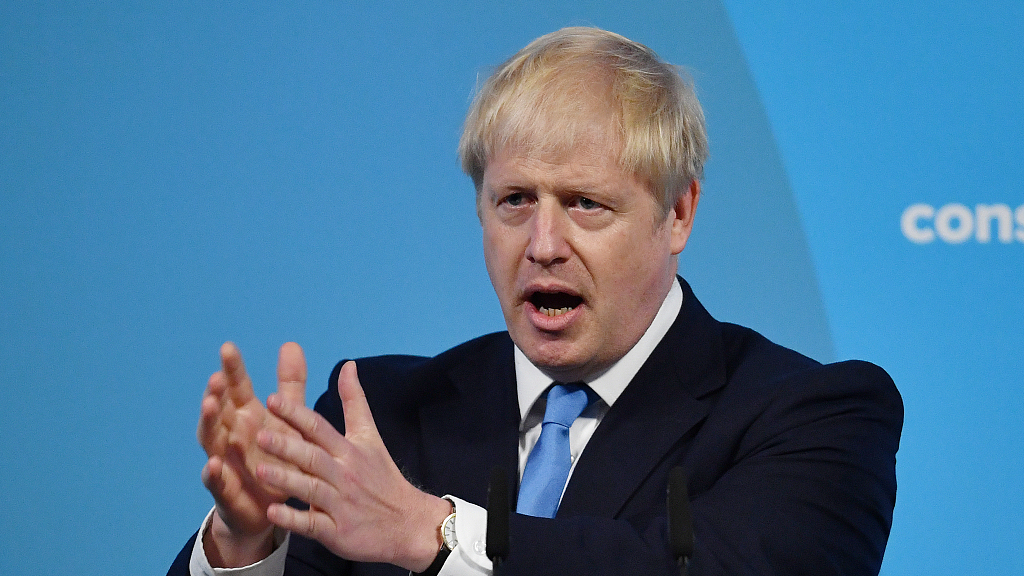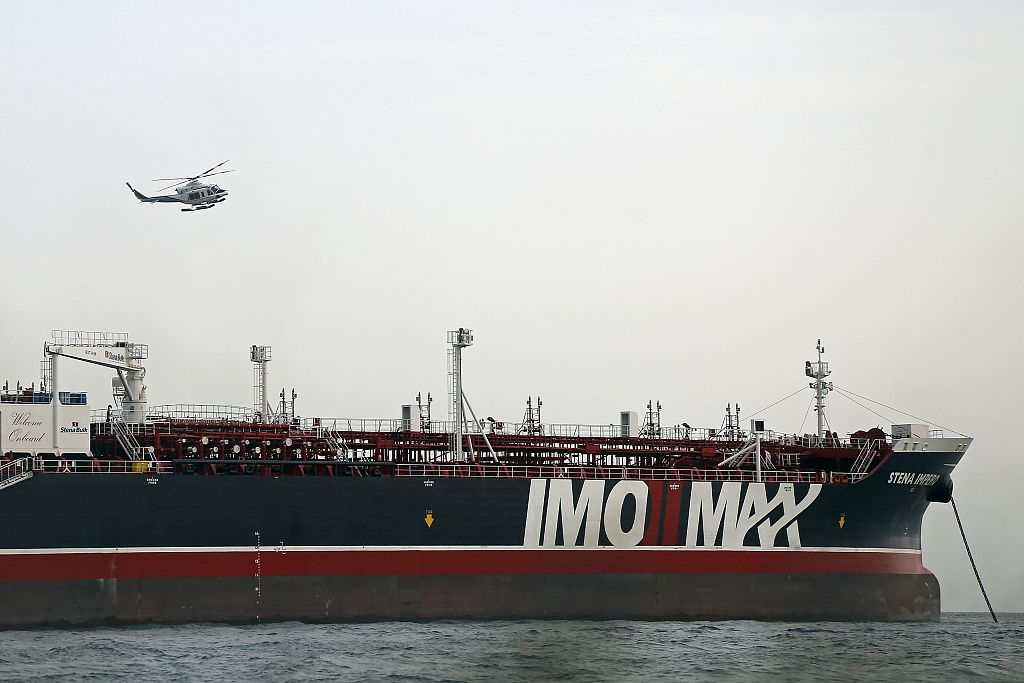

Editor's note: Guy Burton is visiting fellow at the London School of Economics Middle East Center and an adjunct professor at Vesalius College, Brussels, where he teaches global governance. The article reflects the author's views, and not necessarily those of CGTN.
Former Foreign Secretary Boris Johnson was declared on July 23 as the new Conservative party leader after a month of campaigning and voting by the party's MPs and its members. He will also become prime minister soon after, as the incumbent, Theresa May, is stepping down.
The honeymoon will not be long though: the new leader will have to sort out Britain's departure from the European Union (EU) before the end of October.
At the same time, there will be a more immediately pressing foreign policy issue to deal with: the question of Iran. Last Friday Iran seized two British-owned or operated tankers in the Straits of Hormuz. One was eventually released but the other, Stena Impero, remains in detention and has precipitated an international crisis.
What has led to this incident and how will this end? There are both proximate as well as broader factors to consider. Tehran's actions followed a British capture of an Iranian tanker, Grace 1, near Gibraltar on July 4. London claimed that the tanker was transporting oil to Syria, in contravention of EU sanctions even though Iran's government protested, saying that the ship was not heading to Syria.
Now, if Grace 1 fails to deliver her cargo, this will prove costly for the Iranians, who are already struggling from the U.S. decision to withdraw from the Joint Comprehensive Plan of Action (JCPOA) last year. Following the withdrawal, the U.S. unilaterally re-imposed sanctions which threatened third parties who wanted to deal with Iran and which also had business dealings in the U.S. or with American companies. Since then, the U.S. and Iran have become more confrontational.
At the same time, Iran and its proxies are accused of having made the Gulf a less secure place for shipping: in May and June several tankers were attacked and damaged, although no one has claimed responsibility. Given this, Washington has proposed to move additional troops into the region as well as several naval ships. Trump has also called on other states to participate more in the Gulf's security.
It is in this context that the Stena Impero was taken. Unlike the British Heritage, there was no British naval support nearby. Questions are thus being asked in London about the government's preparedness and protection of British ships in the Gulf.

Iranian Revolutionary Guards patrol around the British-flagged tanker Stena Impero as it's anchored off the Iranian port city of Bandar Abbas, July 21, 2019. /VCG Photo
Critics are also asking whether the Grace 1 detention made it more likely for a British tanker to be seized and why Britain decided to act as it did: Iran is a longstanding Syria ally and may well have supplied the regime with oil during its civil war. So why impound an Iranian ship headed for Syria now when it had done so in the past?
Meanwhile, another question is raised with regards to the legitimacy of the British confiscation. For example, Carl Bildt, former Swedish prime minister and co-chair of the European Council of Foreign Relations, tweeted that since Iran is not a member of the EU and the EU doesn't impose its sanctions on third parties, capturing Grace 1 on the grounds of Iran's violation of EU sanctions seems to be odd.
For some, suspicion falls back on the U.S. Has it taken advantage of what is a relatively weak and vulnerable British position? The current change in political leadership coincides with considerable uncertainty over how Brexit will happen. There's a strong possibility that under Johnson, Britain may leave the EU without a deal. That could have financial consequences and makes it even more vital that Britain reaches trade agreements with other countries as soon as possible, including the U.S.
At the same time, Iran's motives must also be considered for the same reasons. Of the three European signatories of the JCPOA, dubbed "EU3," which includes Britain, France and Germany, Britain is arguably the more ambivalent concerning the JCPOA. In part this reflects its own view of being closer to Washington than the rest of Europe (the so-called "special relationship"). For Tehran, this calls for greater persuasion. Certainly, Britain's recent inward focus and inability to act proactively abroad has helped Tehran.
Since May, Iran has been looking for ways to press the Europeans to bring the U.S. back into the fold. One way was to increase its stockpile of nuclear material, which has resulted in France pushing for greater dialogue. Another may be to make the Gulf more insecure for European ships.
The new British prime minister will face a big test to resolve both the immediate crisis surrounding the Stena Impero (and Grace 1) as well as the wider dispute over the JCPOA and sanctions. Over the weekend, Hunt announced that there would be "serious consequences," but at present it is not certain what those will be.
It is likely that the new British government will want to confine difficulties to the immediate case of getting the tanker out of Iranian custody. But it is hard to see this being achieved without reference to the wider stand-off between the U.S. and Iran. How the new prime minister manages those tensions and relations with both sides may tell us much about future British foreign policy.
(If you want to contribute and have specific expertise, contact us at opinions@cgtn.com.)

Copyright © 2018 CGTN. Beijing ICP prepared NO.16065310-3
Copyright © 2018 CGTN. Beijing ICP prepared NO.16065310-3